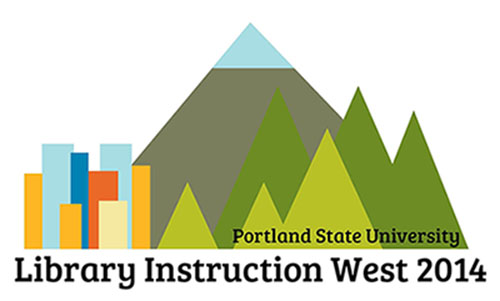Start Date
7-25-2014 2:45 AM
End Date
7-25-2014 3:45 AM
Subjects
Blended learning -- Case studies, Information literacy -- Study and teaching (Higher), Academic libraries, Information services -- User education
Description
Purpose – This paper aims to describe the MacEwan University Library’s successful pilot of a fully blended information literacy (IL) instruction program for first-year English courses. Development, implementation and assessment of the pilot prior to full implementation are discussed.
Design/methodology/approach – The new sustainable blended model for the English Library Instruction Program reduced duplication of content and effort, incorporated online and in-person instruction and promoted self-directed learning opportunities through a new Learning Commons. This model places essential instruction online while maintaining personal relationships for students with the English Librarian and the Library through multiple points of interaction. Face-to-face instruction efforts were concentrated on developing critical thinking skills through a hands-on source evaluation activity and on providing point-of-need support. Librarians worked closely with English faculty to encourage early voluntary adoption of the new model for the Fall 2013 pilot.
Findings – The voluntary early-adopter model worked well for garnering and maintaining support from the English department: the authors had 42 per cent of English sessions piloting the new model for Fall 2013, surpassing the initial target of 25 per cent. Students scored well on an assessment of their ability to identify scholarly sources. Librarian preparation time has been greatly reduced.
Originality/value – Many academic libraries are looking to asynchronous online tutorials as a more sustainable model for delivering IL instruction. This case study demonstrates that it is possible to move some instruction online while maintaining the personal relationships librarians have forged with students and faculty.
The presentation associated with this article can be accessed at http://archives.pdx.edu/ds/psu/14489.
Persistent Identifier
http://archives.pdx.edu/ds/psu/14512
Included in
Piloting a Blended Model for Sustainable IL Programming
Purpose – This paper aims to describe the MacEwan University Library’s successful pilot of a fully blended information literacy (IL) instruction program for first-year English courses. Development, implementation and assessment of the pilot prior to full implementation are discussed.
Design/methodology/approach – The new sustainable blended model for the English Library Instruction Program reduced duplication of content and effort, incorporated online and in-person instruction and promoted self-directed learning opportunities through a new Learning Commons. This model places essential instruction online while maintaining personal relationships for students with the English Librarian and the Library through multiple points of interaction. Face-to-face instruction efforts were concentrated on developing critical thinking skills through a hands-on source evaluation activity and on providing point-of-need support. Librarians worked closely with English faculty to encourage early voluntary adoption of the new model for the Fall 2013 pilot.
Findings – The voluntary early-adopter model worked well for garnering and maintaining support from the English department: the authors had 42 per cent of English sessions piloting the new model for Fall 2013, surpassing the initial target of 25 per cent. Students scored well on an assessment of their ability to identify scholarly sources. Librarian preparation time has been greatly reduced.
Originality/value – Many academic libraries are looking to asynchronous online tutorials as a more sustainable model for delivering IL instruction. This case study demonstrates that it is possible to move some instruction online while maintaining the personal relationships librarians have forged with students and faculty.
The presentation associated with this article can be accessed at http://archives.pdx.edu/ds/psu/14489.



Notes
This is the authors' accepted version of an article that was subsequently published in Reference Services Review, Volume 43 Issue 1 by Emerald Group Publishing. The version of record may be found at: http://dx.doi.org/10.1108/RSR-09-2014-0040.
This article is (c) Emerald Group Publishing and permission has been granted for this version to appear here (http://pdxscholar.library.pdx.edu/). Emerald does not grant permission for this article to be further copied/distributed or hosted elsewhere without the express permission from Emerald Group Publishing Limited.